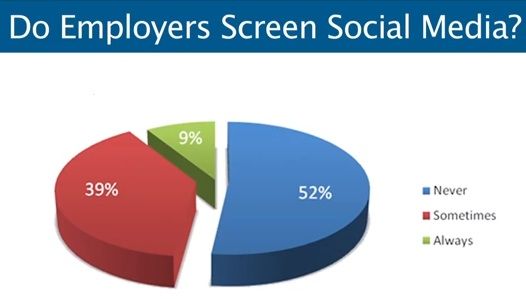Screening social media accounts such as Facebook scares away top job applicants and may not be in the best interest of the employer, says research carried out at North Carolina State University.
The study has been published in the Journal of Business and Psychology.
Will Stoughton and colleagues found that screening social media accounts might make it more difficult for companies to attract top applicants, because the practice alienates them.
In fact, the employer runs the risk of being sued for invasion of privacy, the researchers added.
Stoughton said:
“The recruiting and selection process is your first indication of how you’ll be treated by a prospective employer. If elite job prospects feel their privacy has been compromised, it puts the hiring company at a competitive disadvantage.”
The team carried out two studies that produced similar results.

Screening social media is done by 47% of companies either sometimes or always (Source: EmployeeScreenIQ)
Screening social media – Study 1
A total of 175 online job applicants were told by their prospective employer that their Facebook accounts had been assessed for “professionalism”. They had also been told that the company would soon let them know whether they would be offered the job.
Two-thirds of the candidates said they felt that screening their Facebook accounts was an invasion of privacy that reflected poorly on the firm. They added that this behavior made the company less appealing for them.
Screening social media – Study 2
In this simulation, 208 volunteers were asked to imagine that their prospective employer had checked their Facebook accounts for professionalism.
Half of them were asked what they would have done if the company had offered them the position, while the other half were asked how they would have responded if the employer had turned them down.
Sixty percent of respondents in both groups said that having their privacy violated made them have a negative view of the company, i.e. whether there was a job offer or not made no difference.
Fifty-nine percent of those questioned in the second study said they were much more likely to sue the company for invasion of privacy. In the first study participants were not asked this question.
Co author, Dr. Lori Foster Thompson, said:
“This research tells us that companies need to carefully weigh whatever advantage they believe they get from social media screening against the increased likelihood of alienating potential employees. Elite job prospects have options, and are more likely to steer clear of potential employers they don’t trust.”
On October 9th, Market Business News reported on a study that revealed the true personality traits of job candidates are more likely to be observed by screening their social media posts than through face-to-face interviews.

